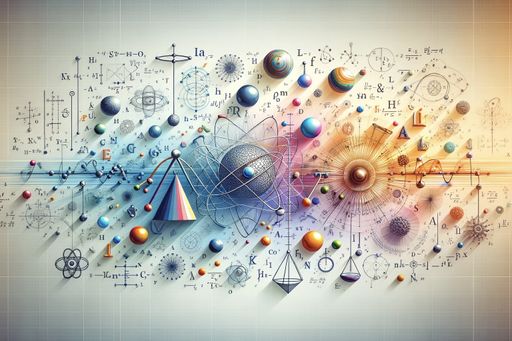Quantum breakthrough: Non-Abelian anyons created for the first time
A new state of matter that could change the world of quantum computing.

Non-Abelian anyons: A New State of Matter
Ashvin Vishwanath, a theoretical physicist at Harvard University, explores the behavior of basic building blocks of matter in a hypothetical two-dimensional world. In this world, known as a 2D world, particles called non-Abelian anyons could exist. Unlike the particles we are familiar with in our 3D world, non-Abelian anyons possess unique properties that make them highly interesting for the field of quantum computing.
In our world, matter is made up of two fundamental types of particles: bosons and fermions. Bosons are responsible for light and force, while fermions make up everything we see and touch. However, in a 2D world, other particles can exist that are neither bosons nor fermions. These particles, known as non-Abelian anyons, exhibit intriguing and strange properties.
Non-Abelian anyons are not individual particles but rather collective excitations of special phases of matter. They can only exist within a 2D plane, where their movement and behavior are fundamentally different from particles in a 3D world.
Magic of Non-Abelian Anyons
Non-Abelian anyons possess a unique kind of memory. When they swap places with one another, they retain memory of their previous positions and orientations, which influences their future behavior. This memory-like property is akin to a magic trick, where a magician moves cups around and reveals a hidden ball under one of them.
Moreover, this memory property makes non-Abelian anyons topological. This means they are resistant to small deformations and disturbances. They can be stretched, twisted, or bent without losing their identity or information. These characteristics make non-Abelian anyons highly attractive for the field of quantum computing, where preserving and manipulating information is crucial.
Non-Abelian anyons could potentially serve as robust qubits, which are the basic units of information in quantum computing. Unlike classical bits, which are prone to errors, qubits can store and process information in a more powerful way. The stability and resilience of non-Abelian anyons could unlock the full potential of quantum computing and enable the solution of complex problems.
Creating Non-Abelian Anyons for Quantum Computing
While non-Abelian anyons have been predicted by theory for many years, they had never been observed or created in a laboratory until now. In collaboration with Quantinuum, a quantum computing company, Ashvin Vishwanath and his team achieved a breakthrough in creating and controlling non-Abelian anyons.
Using a powerful quantum processor, the team manipulated the quantum state of a system consisting of 27 trapped ions. Through a series of partial and targeted measurements, they successfully shaped the system's quantum state to achieve the desired non-Abelian topological order.
The team's experiment verified the properties and behavior of non-Abelian anyons and demonstrated the scalability of the system to larger sizes. This achievement paves the way for the practical application of non-Abelian anyons in quantum computing.



